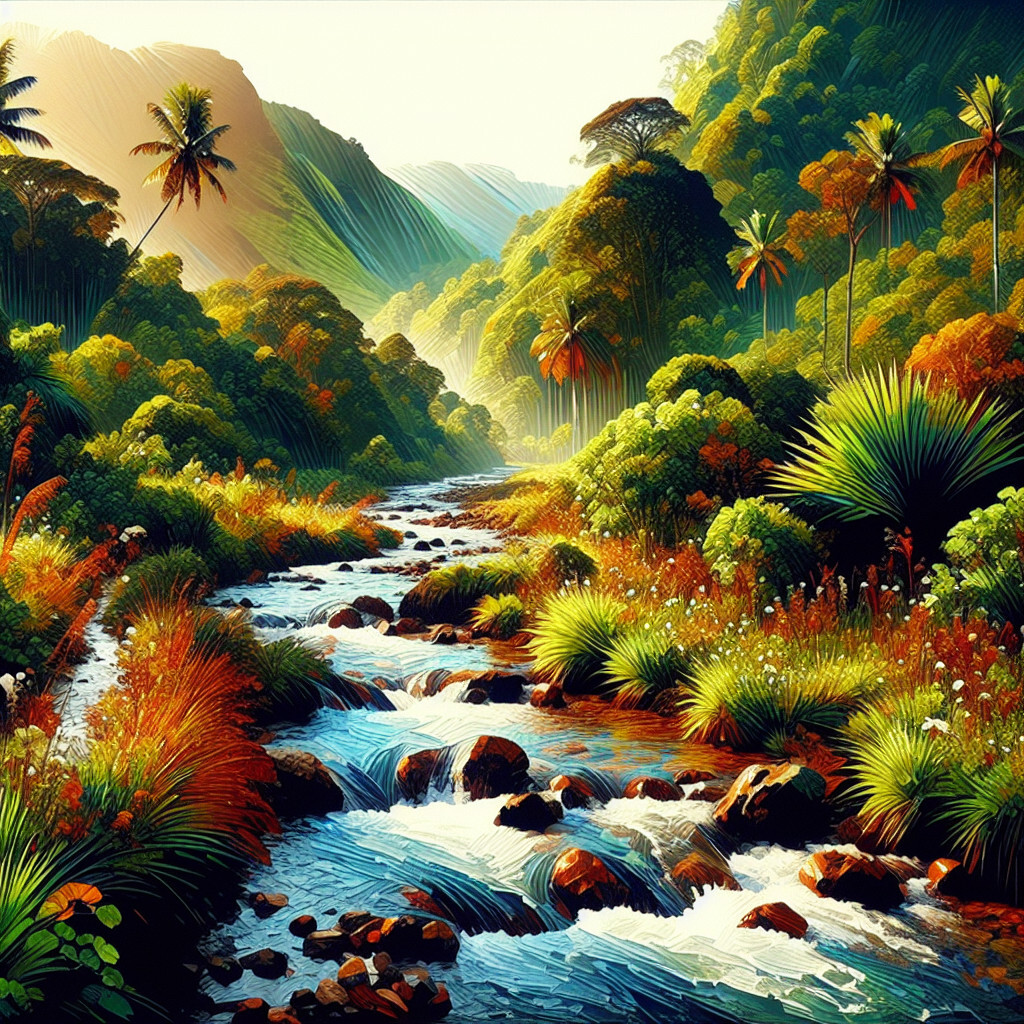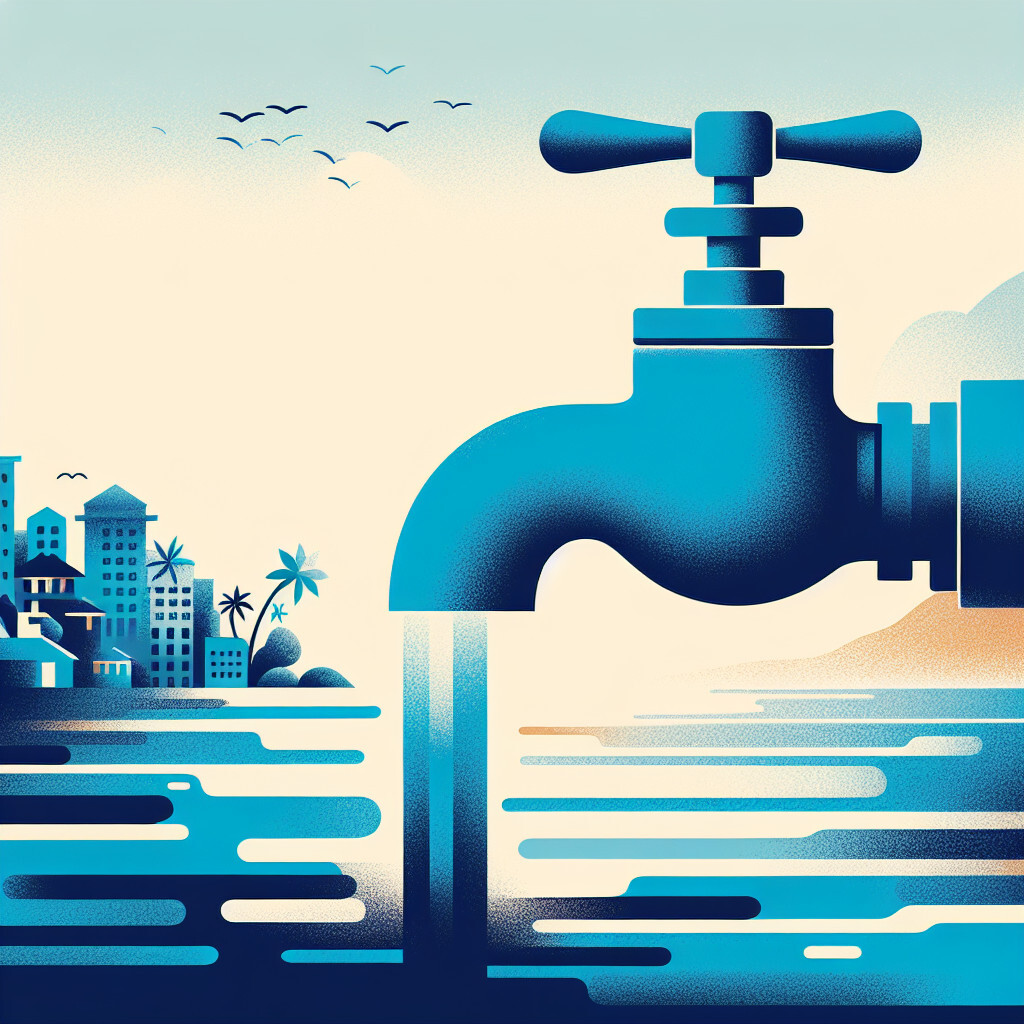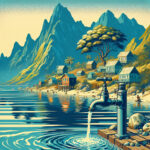-
Table of Contents
“Samoa’s Tap Water: Pure, Clean, and Refreshing Straight from the Pacific.”
Introduction

The tap water in Samoa, a country located in the South Pacific Ocean, is generally not recommended for drinking, especially for tourists, due to potential contamination. While some areas may have access to treated water, the quality can vary significantly, and in rural areas, people often rely on rainwater or untreated sources. The government has been making efforts to improve the water supply system and sanitation facilities, but issues like waterborne diseases remain a concern. Therefore, it’s often advised to drink bottled or boiled water.
Understanding the Quality of Tap Water in Samoa
The quality of tap water in any region is a critical factor that directly impacts the health and well-being of its residents. In the Pacific Island nation of Samoa, the issue of tap water quality is of particular importance due to the country’s unique geographical and climatic conditions. This article aims to provide an understanding of the quality of tap water in Samoa, shedding light on the various factors that influence it.
Samoa, located in the South Pacific Ocean, is a tropical paradise known for its lush landscapes and pristine beaches. However, beneath this idyllic exterior, the country grapples with the challenge of providing clean, safe tap water to its residents. The primary source of tap water in Samoa is surface water, which includes rivers, streams, and lakes. This water is treated and supplied to households through a network of pipes.
The quality of tap water in Samoa is influenced by several factors. Firstly, the country’s tropical climate, characterized by heavy rainfall, can lead to the contamination of surface water sources. Rainwater can wash pollutants, such as agricultural runoff and waste materials, into these water bodies, affecting their quality. Secondly, the country’s geographical location makes it vulnerable to natural disasters like cyclones and earthquakes, which can damage water infrastructure and disrupt supply.
Despite these challenges, the Samoan government has made significant strides in improving the quality of tap water. The Samoa Water Authority (SWA), the body responsible for water supply in the country, has implemented various measures to ensure the safety and reliability of tap water. These include regular monitoring and testing of water sources, treatment of water to remove contaminants, and maintenance of the water supply infrastructure.
However, despite these efforts, the quality of tap water in Samoa can vary. In urban areas, where the water supply infrastructure is more developed, tap water is generally safe for consumption. However, in rural areas, where access to treated water can be limited, the quality of tap water may not meet the required standards. In such cases, boiling water before consumption is recommended to kill any harmful bacteria or parasites.
Furthermore, the quality of tap water in Samoa can also be affected by the condition of the household plumbing. Old, corroded pipes can leach harmful substances into the water, affecting its taste and safety. Therefore, it is advisable for residents to regularly check and maintain their home plumbing systems.
In conclusion, while the quality of tap water in Samoa has improved over the years, challenges remain. The country’s unique geographical and climatic conditions, coupled with infrastructural limitations, can affect the safety and reliability of tap water. However, with continued efforts from the government and increased awareness among residents about the importance of water safety, it is hoped that access to clean, safe tap water will become a reality for all Samoans. As a visitor or resident, it is always prudent to stay informed about the local water quality and take necessary precautions to safeguard one’s health.
The Impact of Climate Change on Samoa’s Tap Water
The Pacific Island nation of Samoa, renowned for its vibrant culture and stunning natural beauty, is grappling with a pressing issue that threatens its very existence – climate change. This global phenomenon has far-reaching implications, one of which is the quality of Samoa’s tap water.
Samoa, like many other island nations, relies heavily on rainfall for its freshwater supply. The water collected is treated and then distributed to households and businesses through a network of pipes. However, climate change is disrupting this seemingly simple process in several ways.
Firstly, climate change is causing shifts in rainfall patterns. Samoa is experiencing longer periods of drought, interspersed with intense rainfall events. These erratic weather patterns make it difficult to maintain a consistent supply of freshwater. During droughts, the water levels in reservoirs and aquifers drop, leading to water shortages. On the other hand, intense rainfall events can overwhelm the water treatment facilities, leading to the distribution of untreated or partially treated water.
Secondly, climate change is causing a rise in sea levels. Samoa, being a low-lying island nation, is particularly vulnerable to this. As sea levels rise, saltwater infiltrates the freshwater aquifers, contaminating the water supply with salt. This process, known as saltwater intrusion, can render the water unfit for consumption or irrigation.
Thirdly, climate change is leading to an increase in the frequency and intensity of tropical cyclones. These extreme weather events can cause significant damage to water infrastructure, disrupting the supply of tap water. Moreover, the heavy rainfall associated with cyclones can lead to flooding, which can contaminate water sources with pollutants and pathogens.
The impact of climate change on Samoa’s tap water is not just a matter of inconvenience; it is a matter of public health and economic stability. Access to clean, safe drinking water is a fundamental human right. When this is compromised, it can lead to outbreaks of waterborne diseases, such as cholera and typhoid. Moreover, water shortages can hinder economic activities, such as agriculture and tourism, which are vital for Samoa’s economy.
The Samoan government, in collaboration with international organizations, is taking steps to address this issue. They are investing in infrastructure to improve the resilience of the water supply system. This includes the construction of new water treatment facilities and the repair of damaged pipes. They are also exploring alternative sources of freshwater, such as desalination and rainwater harvesting.
Furthermore, efforts are being made to raise awareness about water conservation. The Samoan people are being encouraged to use water more efficiently, to reduce the strain on the water supply system. This includes simple measures, such as fixing leaks and using water-saving appliances.
In conclusion, climate change is having a profound impact on Samoa’s tap water. It is disrupting the supply of freshwater, compromising the quality of the water, and posing a threat to public health and economic stability. However, through investment in infrastructure, exploration of alternative water sources, and promotion of water conservation, Samoa is striving to ensure that its people continue to have access to clean, safe tap water, even in the face of climate change.
Exploring the Safety Measures for Tap Water in Samoa
Samoa, a beautiful island nation in the South Pacific, is known for its stunning landscapes, rich culture, and warm hospitality. However, one aspect that often raises questions among visitors and even locals is the quality and safety of its tap water. This article aims to explore the safety measures for tap water in Samoa, providing a comprehensive understanding of the situation.
Samoa’s water supply system is primarily managed by the Samoa Water Authority (SWA), which is responsible for ensuring the provision of safe and clean water to the population. The SWA operates under stringent guidelines and regulations, with a commitment to maintaining the highest standards of water quality. The water supplied by the SWA undergoes rigorous testing and treatment processes to ensure it is safe for consumption.
The primary source of tap water in Samoa is surface water, which includes rivers, streams, and lakes. This water is collected in catchment areas and then treated at water treatment plants. The treatment process involves several stages, including coagulation, sedimentation, filtration, and disinfection. These steps are designed to remove any harmful bacteria, viruses, and other contaminants that may be present in the water.
Despite these measures, it is important to note that the quality of tap water can vary across different parts of Samoa. In urban areas, where the water treatment facilities are more advanced, the tap water is generally considered safe to drink. However, in rural areas, the situation can be quite different. Due to the lack of infrastructure and resources, the water in these areas may not undergo the same level of treatment and may therefore pose a risk to health.
Furthermore, Samoa is prone to natural disasters such as cyclones and earthquakes, which can disrupt the water supply system and contaminate the water sources. In such situations, the SWA works diligently to restore the water supply and ensure the water is safe for consumption as quickly as possible. However, during these periods, it is recommended to boil tap water before drinking or use bottled water.
To further ensure the safety of tap water, the SWA collaborates with international organizations such as the World Health Organization (WHO). The WHO provides technical assistance and guidance to the SWA, helping it to improve its water quality monitoring and management practices. This collaboration has been instrumental in enhancing the safety and reliability of Samoa’s tap water.
In addition to these measures, the Samoan government has been investing in improving the country’s water infrastructure. This includes upgrading the water treatment plants, expanding the water distribution network, and implementing advanced water quality monitoring systems. These initiatives are aimed at ensuring that all residents of Samoa, regardless of their location, have access to safe and clean tap water.
In conclusion, while the tap water in Samoa is generally safe to drink, especially in urban areas, it is advisable to take precautions, particularly in rural areas or during times of natural disasters. The Samoa Water Authority, with the support of the government and international organizations, is committed to ensuring the safety of the country’s tap water and is continually working to improve its water supply system. However, when in doubt, boiling tap water or opting for bottled water is a prudent choice.
The Role of Government in Ensuring Clean Tap Water in Samoa
The government of Samoa plays a pivotal role in ensuring the provision of clean tap water to its citizens. This is a critical responsibility, given that access to clean water is a fundamental human right and a cornerstone of public health. The government’s role in this regard is multifaceted, encompassing policy formulation, infrastructure development, quality control, and public education.
The Samoan government, through its Ministry of Natural Resources and Environment (MNRE), formulates policies aimed at safeguarding the country’s water resources. These policies are designed to protect water sources from pollution, manage water catchment areas, and ensure the sustainable use of water resources. The MNRE works in close collaboration with other government agencies, non-governmental organizations, and community groups to implement these policies.
Infrastructure development is another key area where the government plays a significant role. The Samoa Water Authority (SWA), a state-owned enterprise, is responsible for the provision of water and wastewater services in urban areas. The SWA operates and maintains a network of water treatment plants, pumping stations, and distribution pipelines. It also invests in new infrastructure to expand access to clean water and improve service reliability. In rural areas, the government supports community-managed water supply systems through the provision of technical assistance and funding.
Quality control is a critical aspect of the government’s role in ensuring clean tap water. The Ministry of Health, in partnership with the SWA and MNRE, monitors the quality of tap water to ensure it meets national and international standards. This involves regular testing of water samples for a range of parameters, including microbial contamination, chemical pollutants, and physical characteristics. The results of these tests are used to identify and address any issues that may pose a risk to public health.
Public education is another important component of the government’s efforts to ensure clean tap water. The government, through various agencies, conducts public awareness campaigns to educate citizens about the importance of water conservation, the dangers of water pollution, and the need for proper sanitation practices. These campaigns are aimed at fostering a culture of responsible water use and promoting behaviors that protect water quality.
Despite these efforts, challenges remain in ensuring clean tap water for all in Samoa. These include the impacts of climate change, which can exacerbate water scarcity and degrade water quality, and the need for further investment in water infrastructure, particularly in rural areas. The government is addressing these challenges through a combination of policy measures, infrastructure investments, and partnerships with international donors and development agencies.
In conclusion, the government of Samoa plays a crucial role in ensuring clean tap water for its citizens. This involves a range of activities, from policy formulation and infrastructure development to quality control and public education. While challenges remain, the government’s ongoing efforts are critical to safeguarding this vital resource and promoting public health.
Q&A
1. Question: Is tap water in Samoa safe to drink?
Answer: No, tap water in Samoa is not considered safe to drink. It’s recommended to drink bottled or boiled water.
2. Question: What are the common issues with tap water in Samoa?
Answer: The common issues with tap water in Samoa include contamination from bacteria, viruses, and parasites due to inadequate sanitation facilities and heavy rainfall.
3. Question: Are there any efforts to improve the tap water quality in Samoa?
Answer: Yes, the Samoan government and international organizations are working on improving water infrastructure and sanitation facilities to enhance the quality of tap water.
4. Question: How does the tap water in Samoa affect the health of its residents?
Answer: The poor quality of tap water in Samoa can lead to waterborne diseases such as diarrhea, typhoid, and hepatitis A among residents and visitors.
Conclusion
The tap water in Samoa is generally not safe to drink due to potential contamination. It is recommended to drink bottled water or boiled water.






